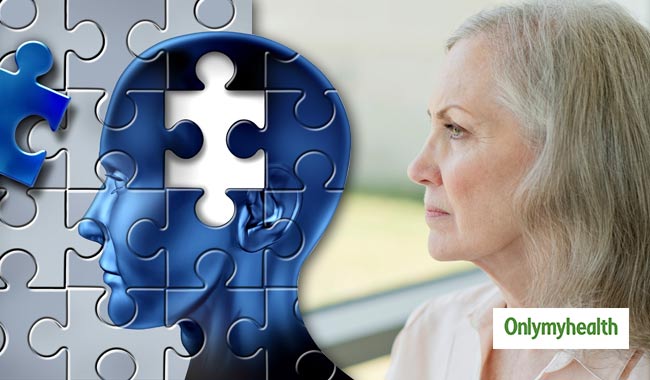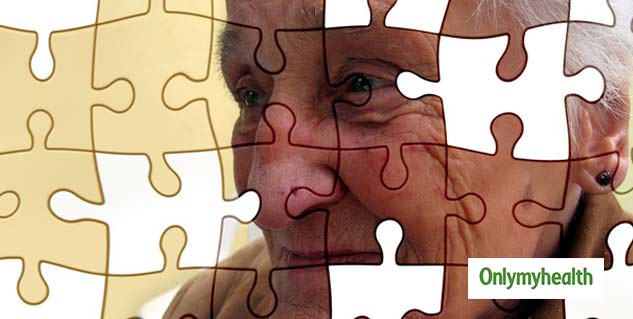
Mild forgetfulness and confusion are normal parts of aging but they are initial symptoms of Alzheimer's disease (AD) as well. The symptoms of Alzheimer's worsen gradually and impact the ability to function normally like speak and write coherently, find one’s way around, make judgments and initiate problem solving.
Table of Content:-

A person with AD may initially notice that he often has difficulty in remembering things and organising his thoughts. But it is possible that the person may not notice anything and it is the family members, friends or co-workers who feel the change or feel that something is wrong.
Also read: 4 Simple Tips for Women to Prevent Alzheimer's Disease
Alzheimer's disease is a brain disorder in which the brain cells degenerate and die which cause trouble with:
Memory
All of us have occasional memory lapses such as where did I keep the cheque book or we forget the name of an acquaintance. But in AD, memory loss worsens gradually and the person can have difficulty in remembering things that happened recently, names of people they know, recognising family members and friends, trouble while speaking, reading or writing, and doing everyday tasks such as brushing teeth or combing hair. People with Alzheimer's may
- Repeat a statement or question again and again
- Forget about conversations, appointments or events, and not even remember them later
- Often misplace personal belongings and put things in illogical locations
- In due course of time, forget names of family, friends and even everyday objects
Disorientation and Mistaken Spatial Relationships
AD affects a person’s sense of time, day, time of year, place (where they are) or even their current life circumstances. As the disease progresses, the person’s ability to interpret things in the surrounding becomes difficult which eventually, may lead to getting lost in familiar places.
Speaking and Writing
AD affects the ability to find the right words to identify objects, express thoughts or take part in conversations. Progressively, reading and writing skills are affected as well.

Thinking and Reasoning
Alzheimer's disease affects concentration, memory and thinking which make it difficult to concentrate and it also shortens the attention span, and makes it difficult to understand abstract concepts such as numbers. So those affected with it, find it difficult to manage their finances, cheque books and payment of bills.
Judgment and Decision
Making everyday judgment and decisions, such as what to do if food is burning on the stove, or how to handle a kitten which suddenly jumps in front of the car while driving, become increasingly difficult.
Planning and Doing Familiar Tasks
Doing everyday activities that need sequential steps such as operating the washing machine or the food processor become difficult and people with advanced AD may even forget how to do daily activities such as bathing, brushing or even dressing for work.
Also read: Ways to detect Alzheimer's disease
Personality and behaviour Alzheimer's disease impacts a person’s ability to function, act normally and how they feel. So they often have
- Depression or anxiety
- Social withdrawal
- Frequent mood swings
- Distrust or suspicion on people around them
- Increased stubbornness
- Irritability and aggressiveness
- Sleep disturbances and sleeping habits
- Wandering away from home
People with AD eventually need undivided attention and care. AD can cause great stress for the family members of the affected person. If the symptoms of AD are worse enough to require personal/specialised care, consult a doctor.
How we keep this article up to date:
We work with experts and keep a close eye on the latest in health and wellness. Whenever there is a new research or helpful information, we update our articles with accurate and useful advice.
Current Version